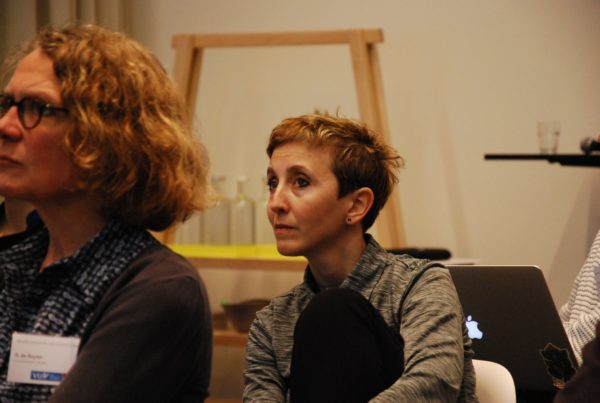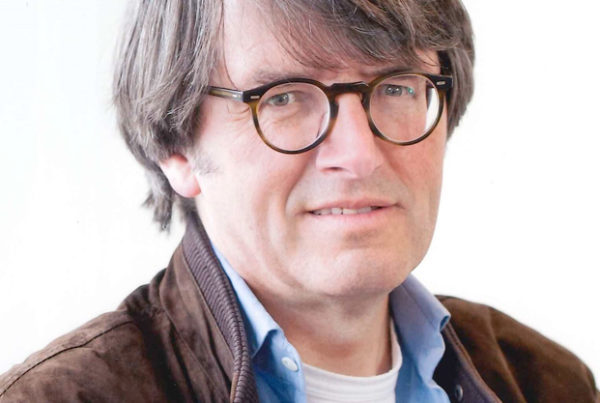Written by: Emily Sohn
In: Nature 539, 319–321 (10 November 2016)
The pressures of a scientific career can take their toll on people’s ability to cope.
Rachel was working towards her PhD in 2008 when depression first threatened to derail her career. The psychologist was clocking 14- to 16-hour days to launch a study and was overseeing 12 research assistants. In her spare time, she was planning her wedding.
Andy Baker/Getty
For three weeks, she barely slept and subsisted on sweets and energy bars. Then came a crying spell that started at a sad theatre performance and turned into three days of uncontrollable sobbing. “I was sitting on my couch, staring at the wall and crying,” says Rachel, who requested that her name be changed for this article.
The seeds of Rachel’s depression pre-dated her PhD. “You are bombarded with messages before you even apply for PhD programmes — that it’s hard to get in, that 50% don’t finish, that it’s hard to get postdocs, that it’s impossible to get grants,” she says. “At the same time, you are surrounded by people who have PhDs. If you already have a tendency toward perfectionism or self-doubt, it feeds that really nicely.”
She returned to work after a two-week break that included therapy and a prescription for antidepressants. After completing her dissertation, she landed an assistant-professor post at a university in New York.
“If you had asked me at the time, I would have said, ‘Oh no, I’m never finishing. I’m leaving academia,’” she says about her break. When she shared her feelings with her father, who also holds a PhD, he told her, “Welcome to science.”
Depression and anxiety are widespread, including among scientists, who often face intense pressure to work long hours, publish in high-profile journals, win grants to support themselves and others and rebound after repeated rejections. Depression affects 350 million people around the world and is the leading cause of disability globally, according to the World Health Organization (WHO).
Each year in the United States, almost 7% of adults, or an estimated 16 million people, have at least one major depressive episode. To be diagnosed with the condition, people must experience a minimum of five specific symptoms that impair functioning or cause significant distress almost every day for at least two weeks. One of those must be a persistently low mood (marked perhaps by a sense of emptiness or hopelessness) or a loss of pleasure or interest in almost all activities. But they might also include recurrent thoughts of death or significant weight loss, for example.
The chance that a person will develop depression during their lifetime varies by nation — in the United States, it is 17%. Depression frequently goes hand-in-hand with anxieties or worries that are so excessive that they interfere with life. Such anxiety affects about 18% of US adults, or 40 million people. More than 25% of Europeans have some form of anxiety or depression, according to the WHO.
Research on the prevalence of anxiety and depression specifically in scientists is scarce. But risks are probably comparable to those for the rest of the population, says Jerald Kay, a psychiatrist at Wright State University in Dayton, Ohio, and co-editor of Mental Health Care in the College Community (Wiley, 2010), whose practice has focused on physicians, university students and faculty members, including researchers.
Some situations are more likely to lead to anxiety and depression. Graduate studies can be particularly tough, because students suddenly face high expectations and low salaries and find that their fates lie in the hands of advisers, who can even live in another country.
In a 2014 survey of 790 graduate students at the University of California, Berkeley, almost half of PhD students met the criteria for depression, including up to 46% of those in a category that included biological and physical sciences. The stigma associated with mental illness can make many researchers cautious about revealing their struggles to anyone, let alone to superiors. Still, experts say that it’s important to seek help, at least from professionals. “If you feel like you’re the only one struggling with a problem, you think, ‘It’s my personal problem, it’s my fault,’” says Joeri Tijdink, a psychiatrist at the VU University Medical Center in Amsterdam, “not a fault of the system.”
Most universities have mental-health services that offer confidential help, although many researchers who have weathered the storm of depression list superiors and colleagues as sources of support. In a high-pressure career that values prestige but is rife with criticism, it helps to know that you’re not alone (see ‘Dealing with depression’).
Box 1: Dealing with depression
Many scientists are likely to encounter a colleague who is struggling. Experts recommend assuring the person that they are not alone and that it's OK to ask for help. Checking in by calling or texting, and listening to what they have to say can help the person to feel cared about and less isolated. Don't tell someone to snap out of it or cheer up. Don't offer simple-sounding solutions, such as yoga or a new diet. It can be insulting to imply that distractions or easy fixes will solve depression. Those kinds of words can also make someone feel like a failure for being unable to get better alone. And don't ask if they are all better now. Healing is a long process and does not necessarily have an end point. For anyone who is struggling themselves, or would like to pass on information about resources, read this.
Helping hands
Shweta Ramdas struggled quietly with depression for several years. Originally from India and a graduate of the National University of Singapore, Ramdas found winters increasingly intolerable when she moved to the University of Michigan, Ann Arbor, to do a PhD in bioinformatics.
On some days she would just stare at her computer, taking weeks to finish one-day tasks. Uninterested in food and tired of feeling unhappy, she thought about quitting.
Ramdas finally told her department chair, who said that others had faced similar problems. Soon colleagues were telling her their own stories. “These were amazing people who I really admire,” she says. “And they did not seem from the outside to be depressed.”
Ramdas spent eight months with family in India, where she saw a therapist. Her professors in Michigan told her to take as much time as she needed. She returned this autumn determined to set limits on work.
Now she is talking to her supervisors about helping others who struggle with depression. “I feel like graduate schools can do a better job about getting this into the open a lot more,” Ramdas says. “I could have handled it better if I had known it wasn’t just me.”
Elizabeth Droge-Young experienced her first depressive episode in early 2012 while studying the mating systems of promiscuous beetles for a PhD at Syracuse University in New York. At first, she would sit on the couch in her pyjamas playing video games, watching films or listening to sad music and questioning the meaning of life.
As time passed, she became unable to get to the lab or take showers. In 2014, she spent ten days in a hospital almost within view of her lab. “As my life started falling apart, science was really the last thing I held on to,” says Droge-Young, who earned her degree this year and is now a science writer. “It kept me going for quite some time, until my depression became too big an issue.”
The transition to graduate studies can be jarring, says Matthew Wilkins, an evolutionary biologist at the University of Nebraska–Lincoln. When he started his PhD programme at the University of Colorado Boulder in 2008, he was caught unawares by the sudden expectation to be self-driven and by the ruthlessness of a career in science, in which successes are often punctuated by rejections — for grants, publications and jobs.
That endless need for external validation can foster anxiety, adds Wilkins, who once received a disappointing score on a high-stakes exam — a week before landing a prestigious fellowship. “In academia, success is not guaranteed,” he says. “You recognize that it’s going to be hard. I don’t think you recognize that it’s going to take a psychological toll on you.”
Tijdink chose to study the psychological effects of publication pressure, partly because of conversations with therapists who treat scientists. “They feel so pressured,” the therapists told him. “They are exhausted. They are suspicious of people stealing their ideas. Or they feel that colleagues want their positions.”
He wanted to make the problem more visible. In a survey of more than 400 medical academics in the Netherlands, published in 2013, Tijdink reported that nearly 25% met the criteria for burnout, which is defined as emotional exhaustion ( et al. PLoS ONE 8, e73381; 2013).
 Andy Baker/Getty
Andy Baker/Getty
Some scientists struggle when they venture beyond conventional research tracks. Paul Andrews, an evolutionary psychologist at McMaster University in Hamilton, Canada, says that when he was a postdoc, he thought his prospects were good because he had published well-cited papers in good journals. But he couldn’t find a position that allowed him to specialize in the biological basis of depression. Frustrated, he lost his motivation to eat, sleep and exercise. And he obsessed about whether to try getting one big study into an influential journal or to churn out lots of smaller papers.
Andrews took the riskier first approach, eventually publishing a paper in Psychological Review in 2009 ( and Psychol. Rev. 116, 620–654; 2009) that received lots of publicity, including a feature about his work in The New York Times Magazine early in 2010. Even after that, he had trouble getting interviews, despite submitting many applications. “I was like, ‘What do I have to do to get a job?’” says Andrews, who was by then desperate, depressed and anxious.
He still has recurring depressive symptoms when he struggles with obstacles at work. His research, which challenges mainstream ideas about depression as a disorder and the role of serotonin, also raises doubts about the value of antidepressants. He has found it hard to get his work published.
Tricky topics
Sometimes, research topics can induce dark thoughts, says Alejandro Frid, who started studying endangered deer in Chile in 1990 and later investigated the effects of marine fisheries on predator–prey interactions in Alaska and British Columbia.
The more his research pointed to the damaging implications of climate change, the more angry and nihilistic he became. “By nihilism, I mean that there is no point in caring about the future because there really isn’t one,” says Frid, who is now a science coordinator at the Central Coast Indigenous Resource Alliance near Vancouver, Canada, and wrote the book A World For My Daughter: An Ecologist’s Search for Optimism (Caitlin, 2015). “It’s all doom. Humans are destructive and we don’t know any better. There’s no real vision worth living for.”
Depression has become a recurring topic of conversation among environmentalists. Frid has cultivated hopefulness by focusing on ecological resilience and the human capacity for problem solving. He is also working to influence policies and human behaviours that affect the environment — approaches that helped to reshape his career and brighten his outlook.
Scientists can be wary of admitting to symptoms of depression or anxiety. But researchers who confide in colleagues say they’re often surprised by the support they receive.
Like Ramdas, Droge-Young found that when she overcame her fear of telling lab colleagues about her mental illness, others told similar stories. One had spent time in the same hospital. Faculty members contributed to a Kickstarter funding campaign for two art shows that describe her experience of depression and self-harm. Her adviser and his family attended. “People are really caring,” she says, “if you open up with your vulnerabilities.”
“If you think you’re struggling, that’s a good reason to get help.”
Not everyone feels comfortable talking to their superiors, but they should really see a professional as early as possible, says Kay. “If you think you’re struggling, that’s a good reason to get help,” he says. And if one therapist doesn’t seem like a good fit, find another, Droge-Young advises.
Allowing time for outside interests can help to alleviate work-related anxiety. For Droge-Young, that means getting outside or throwing Oscars-watching parties. Wilkins likes to rock-climb, play football and run. He also recommends developing short-term projects with quick deadlines that aren’t work-related. This year, he and a friend started entering — and winning — film competitions.
Recognizing that it is normal and even helpful to feel down when faced with complex problems may also help scientists to cope, says Andrews. He sees his own bouts of depression not as a sign of a malfunctioning brain, but as a response to important problems. That response helps him to focus. When prompted by social problems or work stresses, he says, the body reallocates energy to the brain. The hypothalamus kicks in, suppressing libido and other physical drives and inducing a fixation on negative thoughts.
Although such rumination is often seen as a bad thing, dwelling on a problem can actually help to solve it because it helps the mind to break it down into smaller components. Just like a scientist does, Andrews says.




